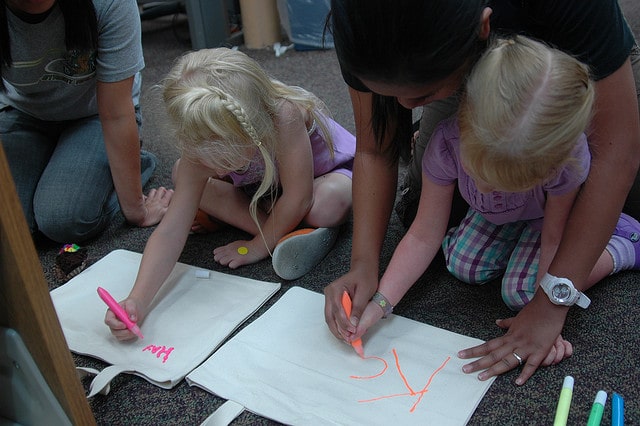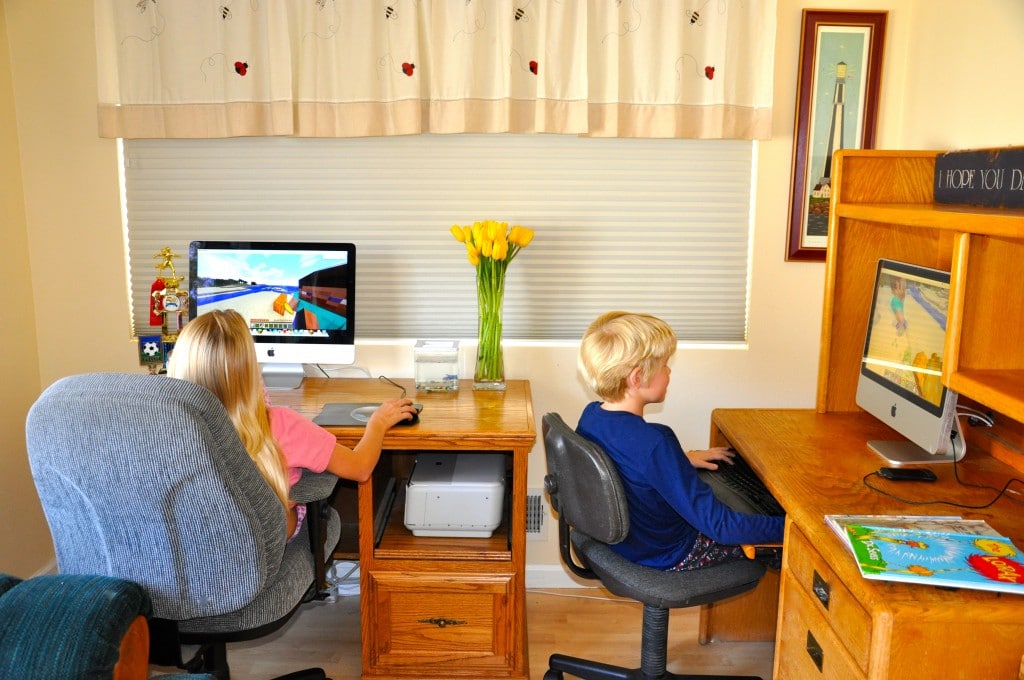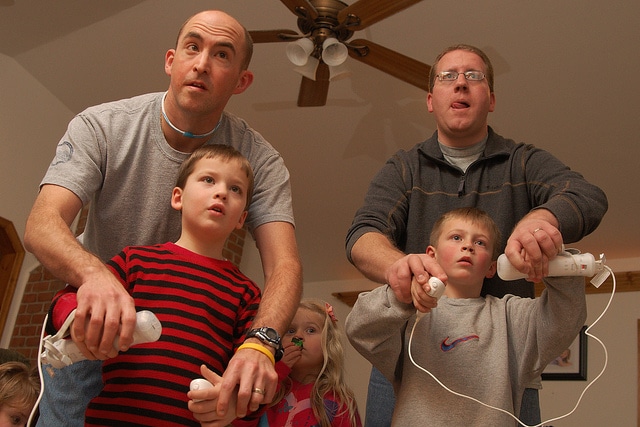
Home staging is complete, now for some rules and regulations! As your children develop complex reasoning abilities, you may begin to educate them about the intricacies of Internet safety. Of course, you will want to customize the information based on your individual child. The important thing to remember is that empowerment and education is the goal rather than issuing threats or inspiring fear. Most importantly, weave your GKIS dialogue into low-key fun conversations rather than serious lectures. The more thought you put into your approach, the more credibility and respect you’ll gain as a parent. The most important goal is to become the person they go to for information and help.
GKIS Internet Safety Checklist (Rules & Regs):
- Schedule a fun and informal GKIS family meeting every week to reinforce rules like time limits.

- I recommend no more than 2 hours/weekday & 3 hours/day weekends of screen time with blackout times. For example, reasonable blackout screen media times include in the morning before school, 90 minutes after school, and 30 minutes before bedtime.
- Don’t cave to pester power and allow your children access to inappropriate screen media content, including movies or television programs. Young children have poorer television literacy than older children. In other words, they are less able to understand and interpret television programming accurately. Because of their inability to maintain consistent attention or interpret abstract connections, children younger than ten years old are unable to follow a storyline and instead may instead only remember a series of disconnected scenes. Unlike older kids and adults, younger children do not follow the arc of the story or the changing motivations of the characters and often accept situations portrayed on television as factual rather than fictional (Schaffer, 583). Research suggests that poor television literacy (i.e., the inability to recognize prosocial elements) accounts for children’s increased aggression when they watch aggressive programming.
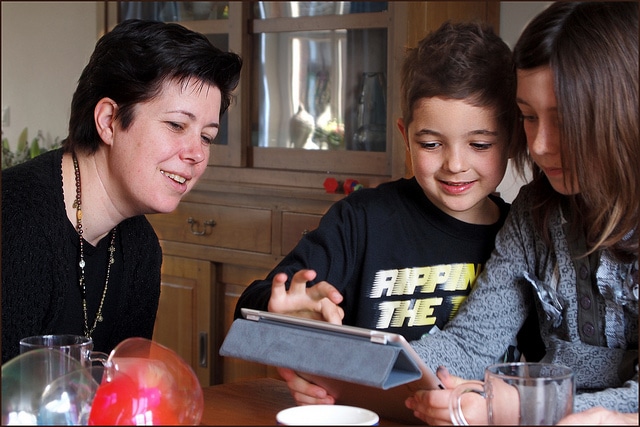
- Take some time to co-view what your kids want to watch. You may be shocked at the ever-increasing portrayal of sex, aggression, and social aggression that is weaved in even children’s programming. If you watch with a proactive eye and form a new awareness, you can make informed decisions about what is allowed in your home and what isn’t.
- It is no longer controversial whether aggression on television is bad for children. Research over many years has clearly demonstrated that watching aggressive television increases aggression and children. Furthermore, kids become desensitized to violence over time and seek more and more aggressive content. They become more accepting of violence in others and more aggressive themselves. Increased aggression continues well into adulthood (Shaffer, 585).
- Keep an eye out for the presence of gender and racial stereotypes in programming that may negatively affect your child’s view of the world and themselves. Body image is of particular concern for young women. If your daughter is watching actors who reinforce an unrealistic, thin ideal, her self-image may suffer.
- Lead with screen media privileges and content; don’t follow. Set up a structure and dole out opportunities as they become appropriate rather than caving to your children’s begging, impulsively allowing access to inappropriate material, and then taking it away when you figured out it’s inappropriate. When parents are proactive and informed, kids better develop critical skills and learn problem-solving strategies. Furthermore, calmly giving justifiable consequences rather than abruptly yanking privileges avoids unfortunate damage to the parent-child alliance. By being informed and strategic, your kids won’t get the opportunity to develop dangerous habits like sneaking, deleting, and developing dishonest workarounds.
- When you are choosing content, insist on a balanced media diet. Require that your children regularly use educational media to provide the foundational nutrition of the media diet. Then encourage the fun media for snacks and dessert. For example, e-books for children are an excellent entrée with complimentary videos as the fun and enriching treat.
- While co-viewing screen media, educate your child about the superficiality of images and how they are used to sell products. Even in children’s television programming, profit drives airing decisions. Remember, children do not have an innate cognitive ability for television literacy, it must be taught to them. (Search with the term “marketing” on the GetKidsInternetSafe.com/blog/ to read more about specific marketing strategies).
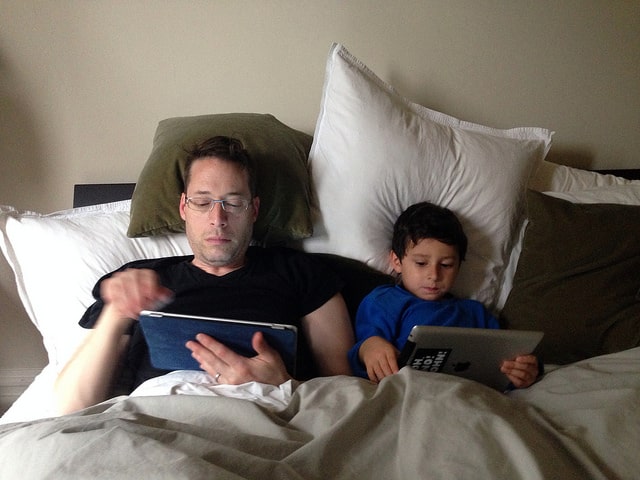
- Give your kids the opportunity to earn trust with screen media over time. It’s a great idea to be emotionally neutral, patient, and nurturing the first time your children make a mistake on their screen media. Don’t sweat it when your child makes a first-time mistake; instead use it as a teaching opportunity. If they make the same mistake again, then it’s appropriate to turn up to volume on your disapproval and determine reasonable consequences. The primary goal is to help your children shape a self-perception of being honest, smart, and capable and working to maintain your children’s trust and respect. Joining in your children’s digital lives in a low-key, positive way helps with these strategies.
- Make sure you praise and reward compliance along the way! Then they’ll work to please you rather than to avoid you.
- In a study that illustrates how important it is to help shape your children’s self perception, Perry and colleagues (p 547) found that when children are told that they were clearly “the kind of child who both wanted to and were capable of doing a good job,” they were more likely to feel remorse and censure themselves for their mistake. This finding suggests it’s important to take the time to build your children up by stating your expectations that they will manage their screen media responsibly. Your kids won’t become arrogant; instead they’ll work to maintain a positive self image.
- Awesomely active parenting characterized by reasoning in a warm, supportive way with gentle probing questions has been demonstrated to be a positive contributor to moral growth (Walker, Hennig, & Kettenauer).
- When your child does make a mistake, avoid the question, “Why did you do that?” Usually children aged 7-11 years don’t know how to answer and their attempts only lead to mutual frustration. A more productive question to ask is, “What could you have done instead?” This leads the child to generate solutions and sets you up as a helpful facilitator rather than a harsh interrogator.
- Plan enriching activities outside of screen media time, like sports, clubs, play dates, and family adventures. We blackout screen media on “activity days,” which teaches restraint, prioritizing, and balance. Plus, it makes limit setting justifiable, simple, and straightforward.

Please join us on the GetKidsInternet Facebook page to share your comments and stories. I look forward to hearing from you!
I’m the mom psychologist who will help you GetYourKidsInternetSafe.
Onward to More Awesome Parenting,
Tracy S. Bennett, Ph.D.
Mom, Clinical Psychologist, CSUCI Adjunct Faculty
GetKidsInternetSafe.com
Works Cited
Perry, David G., Louise C. Perry, Kay Bussey, David English, and Gail Arnold. “Processes of Attribution and Children’s Self-Punishment Following Misbehavior.” Child Development 51.2 (1980): 545-51. Web.Piaget, Jean. The Child’s Conception of Number. London: Routledge & Kegan Paul, 1952. Print.
Shaffer, David R. Developmental Psychology: Childhood and Adolescence. 9th ed. Pacific Grove, CA: Brooks/Cole, 1989. Print.
Walker, Lawrence J., Karl H. Hennig, and Tobias Krettenauer. “Parent and Peer Contexts for Children’s Moral Reasoning Development.” Child Development 71.4 (2000): 1033-048. Web.
Wright, J. C., Huston, A. C., Reitz, A. L., & Piemyat, S. (1994). Young children’s perception of television reality: Determinants and developmental differences. Developmental Psychology, 30, 229–239.
Wright, J. C., Huston, A. C., Truglio, R., Fitch, M., Smith, E., & Piemyat, S. (1995). Occupational portrayals on television: Children’s role schemata, career aspirations, and perceptions of reality. Child Development, 66, 1706–1718.
Photo Credits:

